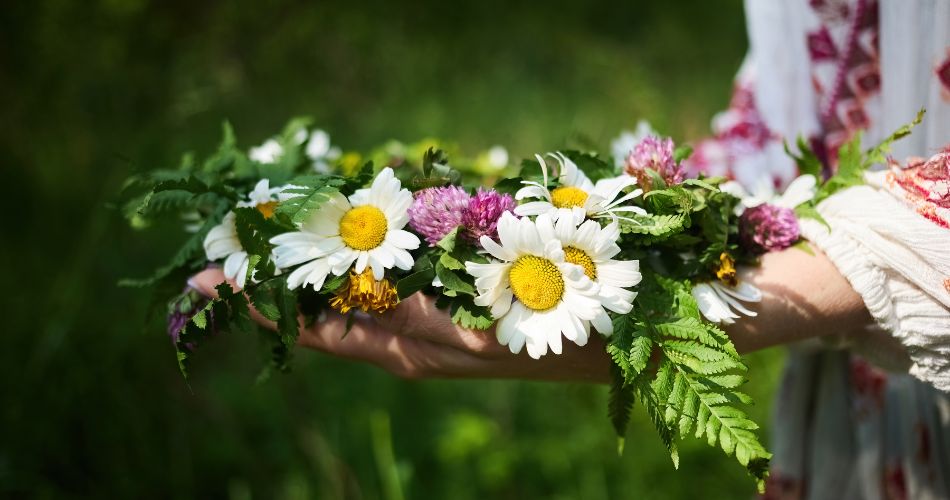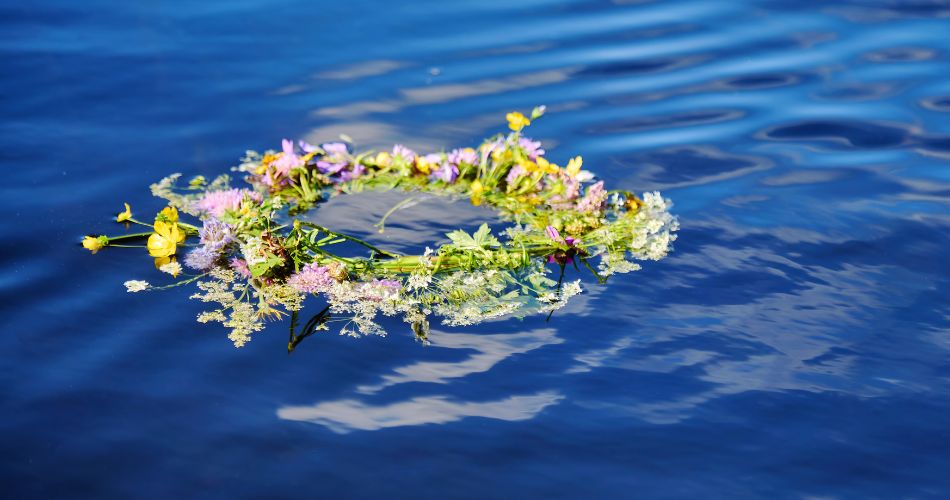Kupala Night, also known as Ivan Kupala Day, is celebrated annually on June 23 in Ukraine and other Eastern Slavic countries. Kupala Night is celebrated on the night of June 23 to June 24. This vibrant festival, rooted in ancient pagan traditions, marks the summer solstice and is associated with rituals that honor the elements of water and fire, symbolizing purification and fertility.
History of Kupala Night
Kupala Night has its origins in pre-Christian Slavic traditions, where it was observed as a celebration of the summer solstice—the longest day and shortest night of the year. The name “Kupala” is derived from the Slavic word for bathing, reflecting the ritualistic importance of water during the festivities. With the advent of Christianity, the holiday was assimilated into the Christian calendar and associated with the feast day of St. John the Baptist, leading to the name “Ivan Kupala” (Ivan being the Slavic form of John).
Despite the Christian overlay, many of the original pagan customs have persisted, especially in rural areas. The festival has been celebrated for centuries, with historical records dating back to the 12th century. Over time, Kupala Night has evolved into a unique blend of pagan and Christian traditions, reflecting the cultural syncretism of the region.
Why is Kupala Night important?

Kupala Night holds significant cultural and spiritual importance as it embodies the themes of purification, fertility, and the unity of opposites—fire and water. The rituals performed during the festival, such as jumping over bonfires and bathing in rivers, are believed to cleanse participants of evil spirits and bring health and prosperity. These practices underscore the community’s connection to nature and the cyclical patterns of life.
Moreover, the festival serves as a rite of passage for young people, with various customs aimed at matchmaking and foretelling future relationships. For instance, unmarried women would float flower wreaths on rivers, and the retrieval of these wreaths by men was seen as a sign of impending courtship. Such traditions reinforce social bonds and communal identity, making Kupala Night a cherished event that fosters unity and continuity within the community.
- Celebrates the harmony of natural elements and the cycle of life
- Reinforces community bonds through shared rituals and festivities
- Serves as a cultural bridge between pagan and Christian traditions
- Provides a platform for youth to engage in traditional matchmaking customs
- Preserves and promotes Slavic heritage and folklore
Ivan Kupala traditions
- Jumping over bonfires to cleanse the soul and prove courage, especially among young couples seeking luck in love
- Weaving and floating flower wreaths on rivers to foresee future relationships—where the wreath floats predicts one’s romantic fate
- Searching for the mythical “fern flower,” said to bloom only on this night and bring luck and hidden knowledge to the finder
- Engaging in playful water fights and bathing in rivers, symbolizing purification and the celebration of summer
- Singing folk songs and dancing in circles around fires until sunrise as a celebration of nature’s vitality
- Girls performing divination rituals using herbs, water, and fire to gain insight into future events or relationships
- Collecting medicinal herbs believed to have heightened power when picked during the night of Ivan Kupala
- Celebrating love and fertility through matchmaking games and communal feasting in rural villages
How to Celebrate Kupala Night

Celebrating Kupala Night involves participating in various traditional activities that honor the elements and foster communal ties. One of the central rituals is the lighting of bonfires, around which people gather to sing, dance, and leap over the flames—a practice believed to purify the soul and bring good fortune. Additionally, bathing in rivers or lakes is customary, symbolizing cleansing and renewal.
Another popular tradition is the search for the mythical “fern flower,” which is said to bloom only on Kupala Night and grants the finder happiness and wisdom. While the fern flower is a legend, the act of searching for it adds a sense of mystery and adventure to the festivities. Participants also weave flower wreaths, which are later floated on water to predict future relationships based on their movement and fate.
- Light and jump over bonfires to symbolize purification
- Bathe in natural bodies of water for spiritual cleansing
- Participate in the symbolic search for the elusive fern flower
- Weave and float flower wreaths to engage in traditional divination
- Sing folk songs and dance to celebrate communal harmony
Kupala Night Dates Table
| Year | Date | Day |
|---|---|---|
| 2025 | June 23 | Monday |
| 2026 | June 23 | Tuesday |
| 2027 | June 23 | Wednesday |
| 2028 | June 23 | Friday |
| 2029 | June 23 | Saturday |
Subscribe to our newsletter and never miss a holiday again!

